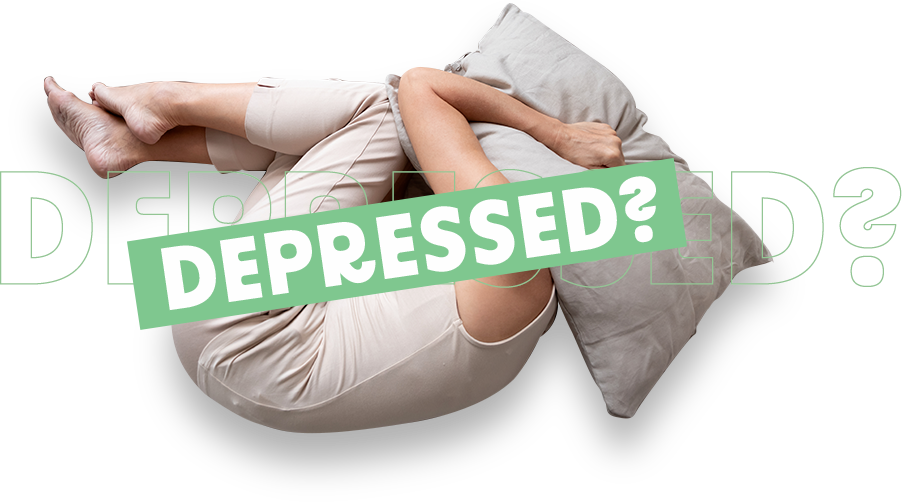What the thyroid is
Where the thyroid gland is located and what it looks like
In order to understand what the thyroid is and why it is so important, we have to learn to recognise it. The thyroid is a small endocrine gland located on the front of the base of the neck, below the Adam’s apple; it is butterfly-shaped, 5-8 cm long and 3-4 cm wide and weighs about 20 grams in adults and about 2 grams in newborns.
It consists of two symmetrical halves (lobes, one right and one left) connected in the middle by a small bridge (isthmus). Behind the lobes of the thyroid there are four parathyroids or parathyroid glands, whose main function is to control the levels of calcium in the blood.
The position of the thyroid is relatively superficial and in normal conditions it is not visible from the outside, but it can be easily reached for examination and palpation by a doctor.

What the thyroid is for
The thyroid serves functions that are fundamental for our health. The key role of the thyroid is to produce thyroid hormones – thyroxine (T4) and triiodiothyronine (T3) – under the control of the thyroid-stimulating hormone or thyrotropin (TSH) that is secreted by the pituitary gland, another small gland at the base of the brain. In addition to the thyroid hormones, the thyroid also produces calcitonin, which is involved in the regulation of calcium metabolism.
The thyroid hormones govern a number of extremely important functions, including breathing, the heartbeat, body temperature, the growth and development of various organs and tissues, the metabolism of fats and sugars, the growth of the body and the development of the central nervous system. The thyroid gland also influences mood, muscle strength and fertility.
T3 is the active form of the hormone, responsible for biological actions within the body and makes up 20% of all the hormones produced by the thyroid. The remaining 80% is constituted by T4, which is rapidly transformed into T3, when necessary.
How the thyroid works
The production of thyroid hormones is regulated, at hormonal level, by the pituitary gland through the secretion of the hormone TSH in response to the release of the TRH (thyrotropin-releasing hormone) produced by the hypothalamus. The release of TSH and TRH is therefore closely related to the levels of circulating thyroid hormones: when the levels of circulating thyroid hormones are too low, the pituitary gland stimulates the production of TSH in the blood, which increases and in turn induces the thyroid to release more hormones; conversely, when the circulating thyroid hormone levels are excessively high, the pituitary gland blocks the production of TSH, which therefore decreases and blocks the activity of the thyroid, which stops producing them.
Under normal conditions, i.e. when there is no thyroid disease, this regulation mechanism is continuously repeated, thus keeping the levels of thyroid hormones in the blood stable. This is why TSH is used as the main parameter for analysing thyroid function.
Correct thyroid function also depends on an adequate dietary intake of iodine, because this element is essential for the formation of the thyroid hormones, which contain atoms of iodine.

Thyroid diseases
Changes in normal thyroid function can cause a great variety of symptoms that, in many cases, can also be non-specific or similar to those of other disorders, or may even not occur at all. This is why it is useful to talk to a doctor who, having listened to the symptoms reported by the patient and considered the possibility that they may be due to a thyroid disease, will initially prescribe thyroid hormone and TSH tests in order to analyse thyroid function.
There are several types of thyroid disease: the gland may not function properly and produce insufficient levels of thyroid hormones, i.e. below the reference level (and consequently the levels of TSH will be high) in the case of hypothyroidism, or release excessive quantities of circulating thyroid hormones, i.e. above the reference value (and therefore the levels of TSH will be low) in the case of hyperthyroidism.
Hypothyroidism and hyperthyroidism are the most common thyroid dysfunctions and may also be associated with other thyroid disorders, such as nodules, goitres, thyroiditis or tumours.
REFERENCES
- Mendoza A, Hollenberg AN. New insights into thyroid hormone action. Pharmacol Ther. 2017 May;173:135-145. doi: 10.1016/j.pharmthera.2017.02.012. Epub 2017 Feb 4
- Boelaert K, Franklyn JA. Thyroid hormone in health and disease. J Endocrinol. 2005 Oct;187(1):1-15.
- Sugimoto K and Kouki Mori (2012). Thyroid-Stimulating Hormone Regulation and Transcription in Hypothyroidism, Hypothyroidism - Influences and Treatments, Dr. Drahomira Springer (Ed.), ISBN: 978-953-51-0021-8
The information provided on the website www.feelthyroid.com is not intended as a substitute for doctor-patient relations or specialist consultations. It is advisable to always consult your doctor and/or a specialist regarding the information and guidance provided.
